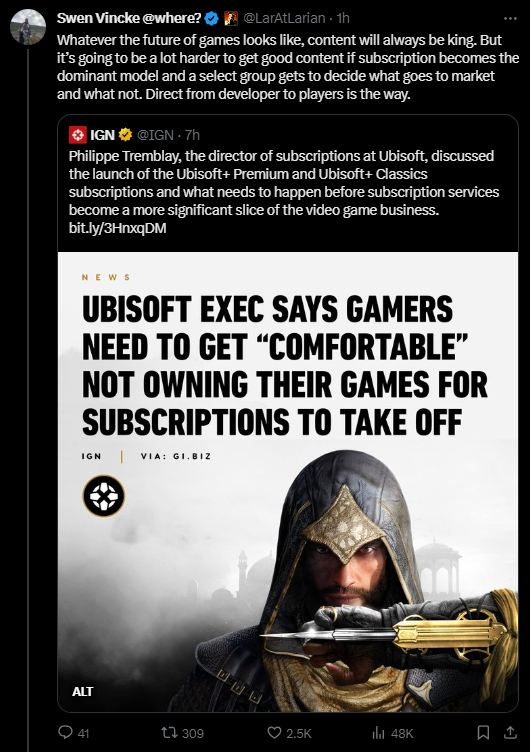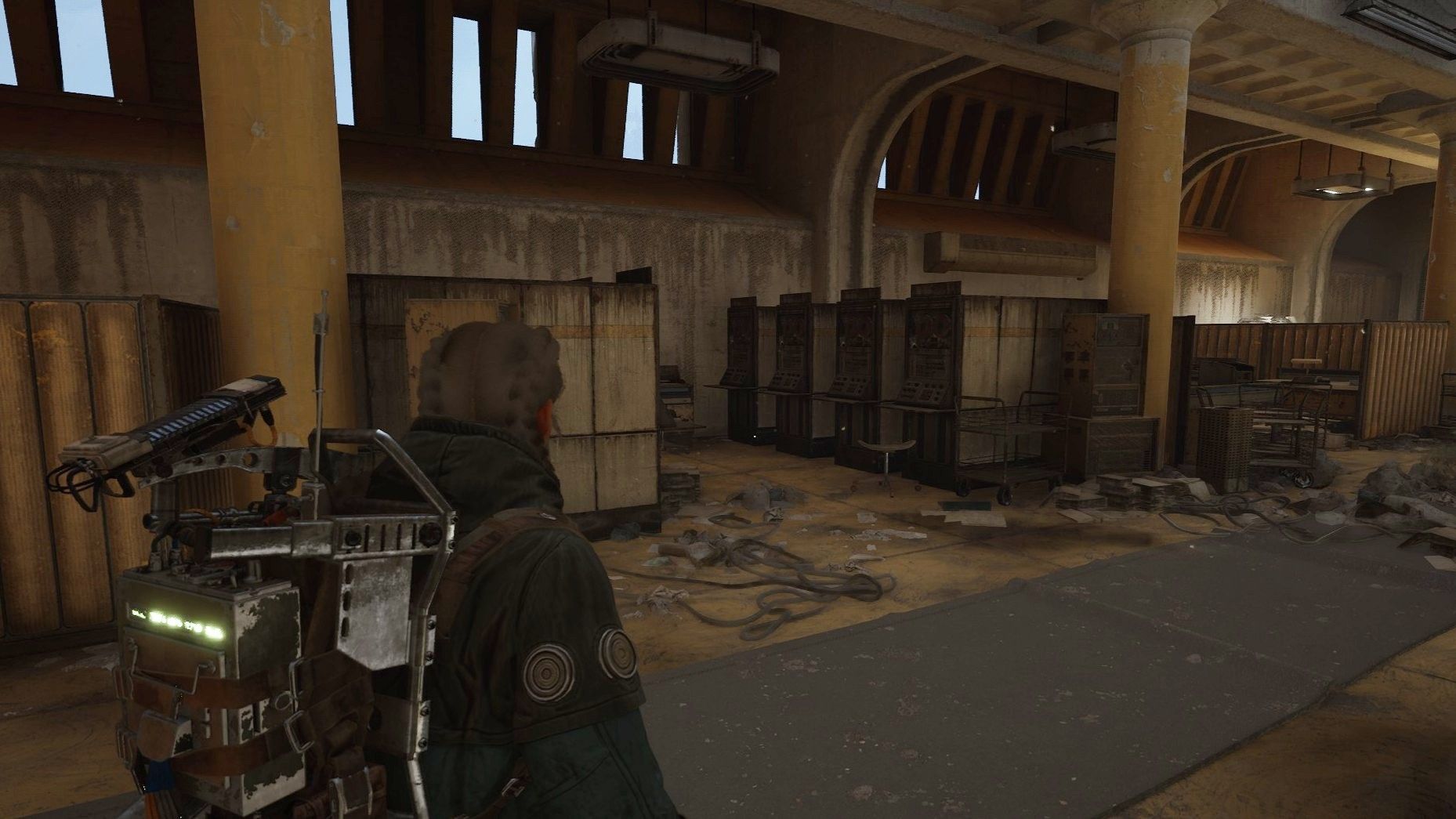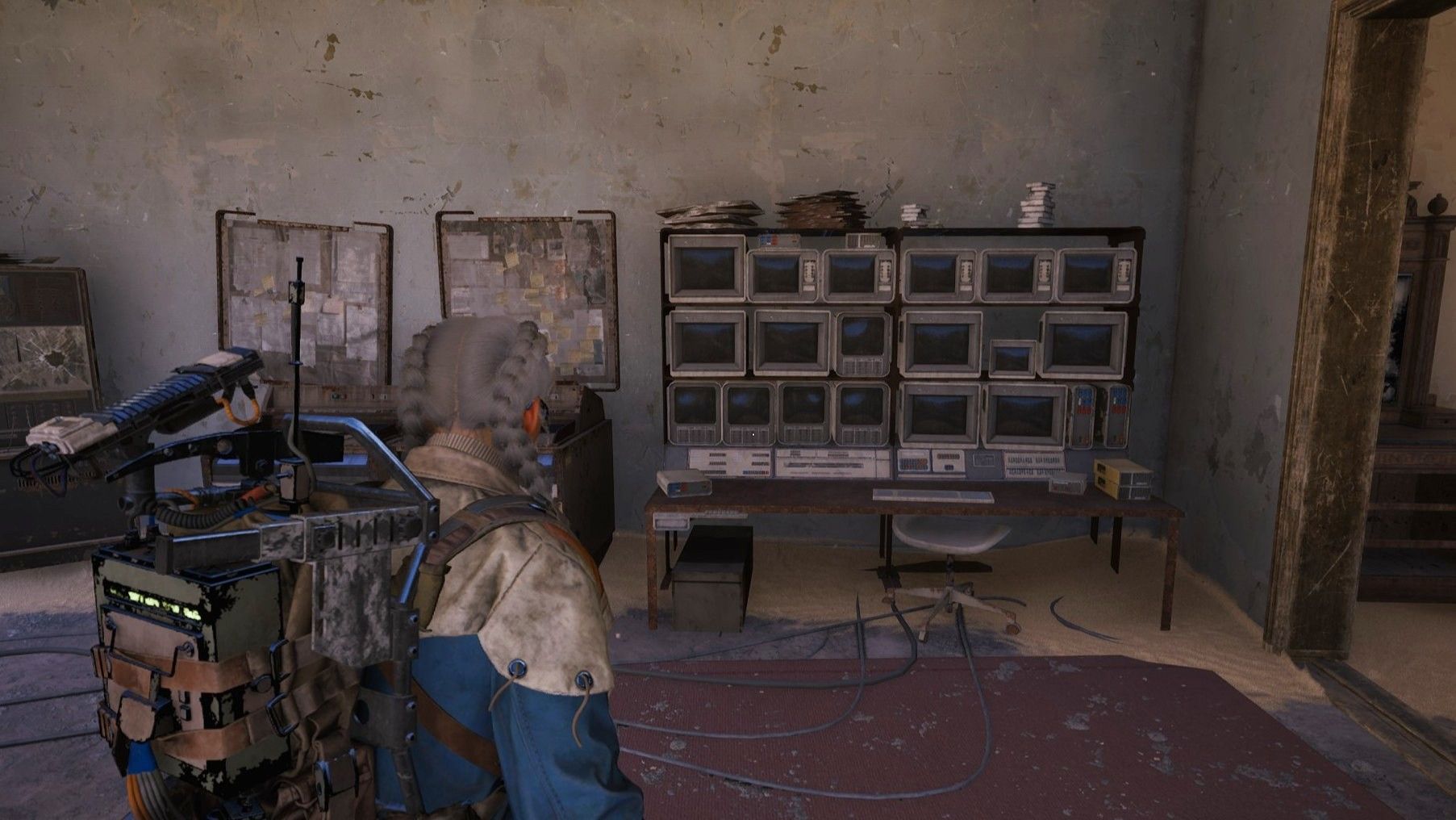The CEO and founder of Baldur’s Gate 3 developer Larian Studios has weighed in on recent prophecies from Ubisoft’s director: gamers will likely grin and bear a subscription-model future. Swen Vincke added to the discussion on Twitter in a thread this morning:
“It’s going to be a lot harder to get good content if subscription becomes the dominant model,” Vincke writes. “Direct from developer to players is the way.”
From Vincke’s perspective, subscription models will wind up driving further “cost/analysis” driven games “intended to maximise profits”—which would make games with smaller fan bases a thing of the past. He argues this would hobble creativity in the medium:
“Getting a board to O.K a project fueled by idealism is almost impossible, and idealism needs room to exist, even if it can lead to disaster,” he argues. “We are already all dependent on a select group of digital distribution platforms and discoverability is brutal. Should those platforms all switch to a subscription, it’ll become savage.”
While he’s not wrong in theory, I feel like I should point out that we’re already there, in a sense. It’s incredibly hard to turn a profit from a game full-stop, especially for developers with a vision. Then again, Vincke would be the most familiar with that struggle—not only is Larian independent, it’s also a studio that almost became bankrupt when it was developing the first Divinity: Original Sin game. As our senior editor Wes Felnon wrote back in 2015:
“To make their dream RPGs in Divinity: Original Sin, Larian went independent, borrowed money from the bank, got outside investors, raised nearly $1 million on Kickstarter, sacrificed Divinity: Dragon Commander and still nearly ran out of funding. If Original Sin hadn’t been a serious success, that could’ve been the end for Larian.”
While it’s somewhat comparing apples to oranges, if we turn to the state of on-demand subscription service TV we do see a pretty desolate landscape. Shows that are critically well-received (such as Netflix’s “Inside Job”) get cancelled out of nowhere all the time—or rather, these decisions are ‘out of nowhere’ for anyone not privy to the corporate shuffling of numbers. Sometimes the forecasting can just be baffling, though—I’m still not convinced that anybody actually watches Big Mouth.
Swen continues: “In such a world by definition the preference of the subscription service will determine what games get made … Trust me—you really don’t want that.” He does, however, acknowledge that subscriptions aren’t a bad thing in themselves. “I respect that for many developers [subscription services] present an opportunity to make their game. I don’t have an issue with that. I just want to make sure the other ecosystem doesn’t die because it’s valuable.”
It’s an interesting discussion to be sure, especially since the drift towards subscription-based services is more manufactured than it is natural—and it didn’t necessarily feel like that for our collective migration from cable TV. Subscription services provided a way to watch what we wanted to watch, when we wanted to watch it. You can already do that with games—if you buy a game you can play it whenever you want, and there aren’t even ads—well, most of the time.





